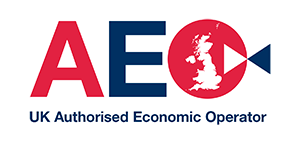
We have identified some new Brexit banana peels that may trip you up if you aren't well-informed of what to look out for and what to expect when conducting trade between the UK and the EU!
The rules of origin are an essential part of trade. When the transition period ended, these rules altered due to the Brexit deal that was made between the UK and the EU. We want to make sure that you know what the rules are to help you avoid a costly customs mishap.
What are the Rules of Origin?
The TCA (trade and co-operation agreement) Rules of Origin detail when zero tariffs apply when trading goods between the UK and the EU.
The Rules of Origin allow for zero tariffs on trade when the goods being traded have been made/manufactured from components derived from either the UK or the EU. Goods that do not originate in the UK or the EU will not be eligible for zero tariffs. Tariffs will apply on these goods.
Some goods fall under product specific rules of origin (PSRS). This means that for every item that has a commodity code, you need to consider where it originates from in order to be eligible for zero tariffs. These goods may be considered ‘wholly obtained’, meaning that the goods in question were extracted or produced in the country of origin and haven’t been manipulated in another territory. Or they may fall under the category of being ‘substantially transformed’.
For full guidance on what bracket your goods fall under, check the TCA rules of origin guidelines.
What Do I Need to Do?
When you are transporting goods between the UK and the EU and want to ensure that zero tariffs are applied, you will be required to show proof that the goods being transported do meet the rules specified in the TCA rules of origin.
What Happens If I Get This Wrong?
A misdeclaration of your goods will leave you susceptible to a hefty fine, so it is extremely important that you are certain that your goods meet the standards for zero tariffs prior to declaring this at the port.
The rules may differ for certain goods. Certain intricacies may change the way you can declare certain loads, so it is important that you check the guidelines to ensure that your goods are actually eligible.
Keep an eye on our blog for more information about the recent change in customs rules.








